#Causes of dengue
Explore tagged Tumblr posts
Text
Understanding Dengue Fever: Symptoms, Causes, and Prevention

Dengue fever, a virus that mosquitoes spread, has become a big health problem in hot and humid areas. This blog will tell you about the signs, reasons, and ways to avoid dengue fever, so you can know more and stay safe.
What is Dengue Fever?
The dengue virus causes dengue fever. Infected female Aedes mosquitoes Aedes aegypti and Aedes albopictus, spread this virus to humans through bites. The virus has four strains. A person who gets infected with one strain might become immune to it. However, the other strains can still infect them. This raises the chances of severe symptoms.
Symptoms of Dengue Fever
Dengue fever symptoms change based on how severe the infection is. People start to show symptoms 4-10 days after an infected mosquito bites them.
Mild Dengue Fever Symptoms:
high temperature (up to 104°F/40°C)
Bad headaches
Pain behind the eyes
Hurting joints, muscles, and bones
Feeling sick and throwing up
Skin rash showing up 2-5 days after the fever starts
A bit of bleeding (like nosebleeds or gums bleeding)
These signs go away within a week, but for some people, the sickness can get worse.
Severe Dengue Symptoms: Severe dengue also called dengue hemorrhagic fever or dengue shock syndrome, can result in life-threatening issues like plasma leakage fluid buildup, breathing problems heavy bleeding, and organ damage. Severe dengue has these signs:
Intense stomach pain
Non-stop throwing up
Bleeding from the gums or nose
Blood in pee, poop, or vomit
Trouble breathing
Tiredness, unease, or crankiness
Severe dengue might show up after the fever goes away, so it's vital to watch infected people.
Causes of Dengue Fever
The dengue virus infects humans when Aedes mosquitoes with the virus bite them. A mosquito gets the virus when it bites someone who has dengue in their blood. Once a mosquito has the virus, it can pass it to others. Remember, dengue can't spread between people.
You're more likely to get dengue if:
You live in or visit tropical or subtropical areas where dengue is common (like Southeast Asia, Pacific islands, Latin America, and Africa)
You're around infected mosquitoes when they're most active (early morning and late afternoon)
Complications of Dengue Fever
Severe dengue can lead to problems like shock bleeding inside the body, and harm to organs such as the liver and heart. Without treatment severe dengue can kill. You need to get medical help right away if you notice any serious symptoms.
How to Prevent Dengue Fever
No specific cure or shot exists for dengue fever so stopping it from spreading is crucial. Here are some key ways to prevent it:
Don't Let Mosquitoes Bite You:
Put on bug spray with DEET, picaridin, or lemon eucalyptus oil.
Cover up with long sleeves, pants, and socks to shield your skin.
Set up bug nets or screens to keep mosquitoes out of your house.
Get Rid of Mosquito Breeding Grounds:
Dump out and clean any containers that collect water, like flower pots, buckets, and tires where mosquitoes lay eggs.
Switch out the water in outdoor pet bowls and bird baths often.
Keep Up with the News:
Watch out for dengue outbreaks if you travel to or live in areas with high risk. Stay away from places full of mosquitoes when these pests are most active.
Shots in High-Risk Places:
Some countries offer the dengue shot Dengvaxia, but doctors suggest it for people who've already had dengue. If you've never had dengue, this shot isn't for you because it might make dengue worse if you catch it later.
When to See a Doctor
If you have symptoms of dengue fever after a trip to an area where dengue spreads, get medical help right away. Quick diagnosis and proper care can lower the chance of problems.
When to Get Tested for Dengue
If you have symptoms such as high fever, body aches, or bleeding after visiting an area with dengue outbreaks, you should see a doctor. At RML Pathology, our complete testing services will help confirm the diagnosis allowing for quick care and lowering the risk of serious complications.
Dengue fever can be deadly. Quick diagnosis, prevention, and treatment are key to fighting this disease. Keep yourself informed, take steps to prevent it, and get tested at RML Pathology to have the best chance of recovery.
Keep yourself protected and take action in the battle against dengue with cutting-edge diagnostic help from RML Pathology!
Conclusion
Dengue fever is a serious illness that can turn into life-threatening conditions. Knowing its symptoms, causes, and ways to prevent it helps you take steps to protect yourself and your family. Stay alert in places where dengue often occurs, and control mosquitoes to cut down the risk of getting sick.
For people in areas with lots of mosquito’s steady work on prevention and staying informed can help control the spread of dengue fever.
This blog offers a complete guide to dengue fever. It stresses how crucial it is to spot, prevent, and treat this disease. To protect your health from this mosquito-spread illness, it's key to stay in the know and take the right steps.
#Dengue fever symptoms#Causes of dengue#Dengue prevention tips#Dengue testing#Dengue NS1 antigen test#Dengue IgG and IgM tests#Mosquito-borne diseases#Severe dengue complications#Dengue diagnosis#Dengue treatment#Aedes mosquito#RML Pathology dengue test#Dengue outbreak prevention#Early detection dengue#Dengue fever in Lucknow#Best pathology lab Lucknow#Dengue care Lucknow#Health checkup for dengue
1 note
·
View note
Text
The symptoms of dengue disease, which is brought on by the dengue virus and spread by mosquito bites, include nausea, joint and muscle pain, high fever, and excruciating headaches. Understanding the four distinct phases of dengue fever—the febrile, critical, convalescent, and recovery phases—is essential to accurately diagnosing and treating this illness transmitted by mosquitoes.
#dengue symptoms in adults#dengue fever medication#dengue virus symptoms#causes of dengue#signs and symptoms of dengue fever
1 note
·
View note
Text
youtube
🦟 Dengue Awareness Alert! Learn how to protect yourself from the menace of dengue with these 5 vital tips: 1️⃣ **Mosquito Repellents:** Arm yourself with effective mosquito repellents to keep these tiny terrors at bay! 💪 2️⃣ **Eliminate Stagnant Water:** Break the breeding cycle by ensuring there's no stagnant water around - mosquitoes love it! 🚫 3️⃣ **Wear Protective Clothing:** Dress smart to reduce skin exposure and minimize your risk of mosquito bites. 🛡️ 4️⃣ **Regular Home Cleanup:** A clean home is a safer home. Regularly clean and declutter to discourage mosquito habitation. 🧹 5️⃣ **Spread Awareness:** Share these tips with your community, because awareness is our best defense against dengue! 📢 Let's unite to fight dengue and create a safer, healthier environment for all. 🌍💙 #DenguePrevention #HealthAndSafety #CommunityAwareness #FightDengue #StaySafe #PublicHealth #wellnesswednesdays For more information, visit: https://www.raphacure.com For professional support and essential tools, don't forget to download our mobile app: 📲 Android: http://bit.ly/3JACQOb 🍏 Apple: https://apple.co/3I0QKbe 🌟🤩 dengue fever treatment dengue tips in home dengue fever tips dr richard mata iwas dengue tips dengue safety tips dengue fever tips dengue prevention tips dengue protection tips dengue,dengue awareness,dengue fever,dengue fever treatment,dengue symptoms,dengue treatment,dengue fever symptoms,causes of dengue,dengue mosquito,prevention of dengue,dengue fever awareness,dengue fever virus,dengue awareness month,what is dengue fever,dengue fever diagnosis,dengue prevention,dengue signs and symptoms,dengue fever vaccine,dengue alert,dengue fever lesson,awareness post,publice awareness,dengue virus,dengue shock syndrome dengue ke lakshan dengue fever symptoms dengue me kya khana chahiye dengue dengue machar kaisa hota hai dengue ka ilaj dengue fever symptoms tamil 2023 dengue fever dengue jorer lokkhon dengue fever symptoms in telugu dengue ke lakshan kya hai dengue mosa dekhte kemon dengue symptoms in bengali
#DenguePrevention#HealthAndSafety#CommunityAwareness#FightDengue#StaySafe#PublicHealth#wellnesswednesdays For more information#visit: https://www.raphacure.com For professional support and essential tools#don't forget to download our mobile app: 📲 Android: http://bit.ly/3JACQOb 🍏 Apple: https://apple.co/3I0QKbe 🌟🤩 dengue fever treatment dengu#dengue awareness#dengue fever#dengue fever treatment#dengue symptoms#dengue treatment#dengue fever symptoms#causes of dengue#dengue mosquito#prevention of dengue#dengue fever awareness#dengue fever virus#dengue awareness month#what is dengue fever#dengue fever diagnosis#dengue prevention#dengue signs and symptoms#dengue fever vaccine#dengue alert#dengue fever lesson#awareness post#publice awareness
0 notes
Text
im so sorry i truly truly truly cant stand the kind of bug loving people online who are so bizarrely morally righteous about how baad and evil it is to dislike bugs or kill them for any reason. im sorry ive posted about this before it constantly pisses me off just saw someone defend the moral righteousness of loving tiger mosquitoes. sorry they ravage my country with disease????? sorry people get bedridden and die???? yes i will keep mentioning this too because my brother got fucking extremely sick with dengue for a long time and now i get angry seeing that. sorry. i will kill those fucking things. i hate them and i dont feel bad about it. i probably have a fixation on this because i have stupid ass moral ocd and i keep making myself feel like a horrible person for killing disease carrying fuckass little bugs. that kill people. and im angry that i have to make myself feel bad for that. whateverrrrrrr
#whatever whateverrrrrr this genuinely makes me so angry its stupid and i hate it#btw i like bugs. i genuinely like bugs. im just angry at the idea Everyone has to like All of them No Matter What#when again. invasive. disease. etc#and ALSO it pisses me off knowing that dengue/zika/malaria are almost only a big problem in latin america#so YES it feels privileged to me to see fuckass americans talking good about mosquitoes when they don't know the pain and death they cause#OK im done
14 notes
·
View notes
Text
Tamtawan's mother: Riding Tam's coattails in school, and still doing it! Honestly
Tamtawan: mum! Phi isn't doing that. I came back because of him
Tamtawan's mother: ?
Padthapi: he means we got back together
Tamtawan's mother: really? I'm happy for you :)
Padthapi+ Tamtawan: :)
Tamtawan's mother: as if. I forbid it! I'm taking you back to Australia
#i don't think dengue fever is caused by overwork#this being tamtawan's primary caretaker in his childhood explains a lot about his personality#the ex morning the series#the ex morning#the ex-morning
2 notes
·
View notes
Text
One thing that has been bothering me for a while is how much people talk shit about kids without reflecting on their own behaviours.
"kids are becoming stupid and can no longer distinguish between what's real or fake in the internet". Can your parents? Can YOU? How much propaganda are you unknowingly interacting with on the daily? How much of it are you consuming knowingly?
"these new generations aren't willing to read up on theory" I know 30 year olds who have never, and proudly declare that they "will never", read an entire book. Most of the people I have interacted with my whole life despise reading, and treat learning as a chore, other than willingly giving yourself more knowledge. This is is not a new problem, this is a symptom of something violently wrong in the current education system.
what you're complaining about isn't something inherently wrong with "the new generations" or "kid's nowadays".
The belief that there's something inherently wrong with the new generations, and that they are doing something wrong is purposefully alienating, and distances you from recognizing the same traits you criticize in yourself and the people you care about. You are creating a fake "THEY" to be mad about, instead of acknowledging the systemic issues and striving to understand who is benefitted by that artificial segregation.
#ooga booga#listen. it's midnight and dengue fever is beating my ass but I've seen too many bad takes today#not even on tumblr. on the news. on the fucking 1980 anthropology texts i was reading.#people just. keep pushing the fault on the kids and ignoring the fact that the way they behave is based on the environment they're growing#up in. All behaviors you see in a child are a mirrored version of what they see in the society around them#90% of everything you're complaining about it caused by the constant push of fundamentalist groups into anti-intelectualism and conservative#trains of thought. This isn't something new. We've seen it ever since the current “academic system” was created
4 notes
·
View notes
Text
Dengue Fever:Symptoms, Causes Management and Treatment
The virus that causes dengue fever is spread through the bite of infected female Aedes mosquitoes, usually Aedes aegypti. With over 390 million infections reported each year, it is a serious worldwide health hazard, according to the World Health Organization (WHO). Dengue fever can range in severity from moderate to severe, and in the latter cases it can be fatal. We'll examine every facet of dengue in this in-depth guide, from its Dengue Fever, Symptoms, Causes Management and Treatment Read More
#Health fitness#Causes Management and Treatment#Dengue Fever:Symptoms#Dengue vaccine#What are the dengue fever's 4 stages?
3 notes
·
View notes
Text
What Causes Dengue: Signs, Symptoms, and Early Detection Tips
Dengue is a very common mosquito-borne viral infection that affects millions of people every year. Usually, we show mild symptoms, which are most often confused with seasonal flu symptoms, but in some people, it can lead to severe complications if not diagnosed and treated promptly.
Therefore, many factors, such as understanding what causes dengue, early warning signs, and getting timely medical care, are crucial. This blog explains the basics of dengue fever and its symptoms, how it's spread, and dengue treatment. What Is Dengue? Dengue is a viral disease caused by the dengue virus (DENV). There are 4 types of dengue virus that are spread by infected Aedes mosquitoes. In dengue, you can get infected with one kind of viral strain, recover, and still be at risk of getting the other types later. Most people who are infected recover in about a week. But if the virus becomes severe, it can lead to serious issues such as internal bleeding, low platelet count, or organ damage.
How Does Dengue Spread? The dengue virus spreads through the bite of infected Aedes mosquitoes, which are most active during the daytime, especially early morning and late afternoon before sunset. These mosquitoes breed in clean, stagnant water in and around houses.
It’s important to understand that dengue doesn’t spread directly from person to person. Here’s how the cycle of dengue transmission works:
A mosquito bites a person already infected with dengue.
The mosquito becomes infected.
When this mosquito bites another person, it transmits the virus. Common Signs and Symptoms of Dengue Symptoms of dengue usually start 4 to 10 days after a mosquito bite. In mild cases, they may resemble the flu or a viral fever.
Common symptoms include:
Sudden high fever (up to 104°F or 40°C)
Severe headaches, especially behind the eyes
Muscle and joint pain
Skin rashes a few days after the fever
Nausea and vomiting
Fatigue or weakness
Swollen glands
Warning Signs of Severe Dengue In some individuals, dengue can progress to a more severe form known as severe dengue, or dengue haemorrhagic fever, which can be life-threatening. This occurs after the initial fever subsides, usually between the 3rd and 7th days of illness.
Rush to a hospital if you see these danger signs of dengue:
Severe abdominal pain
Persistent vomiting
Bleeding gums or nose
Blood in vomit or stool
Difficulty breathing
Sudden drop in blood pressure
Restlessness or extreme fatigue
Diagnosis: How to Detect Dengue Early? Early detection is crucial to managing dengue well. It helps doctors monitor the patient closely and prevent complications. Here are some tips to catch it early: Don’t ignore fever, especially during mosquito season.
If fever lasts over 2 days and there are body aches, undergo the recommended tests for dengue.
Check for additional symptoms like rashes or eye pain.
If you’ve had dengue before, be extra cautious. The second infection may be more severe.
Your doctor may recommend blood tests to confirm the infection. These tests help measure platelet counts and detect dengue-specific markers. Commonly performed tests for dengue are:
NS1 Antigen Test: Detects the virus in the early days.
IgM and IgG Antibody Tests: Help confirm current or past infection.
CBC (Complete Blood Count): Checks platelet levels and white blood cell count.
So, if you notice symptoms and suspect dengue, visit a doctor immediately if the fever doesn’t subside and you feel weaker day by day.
Conclusion In the beginning, dengue can feel like a regular viral illness. But in some people, it can become serious if left unchecked. Recognising the signs early, getting tested, and following medical advice can help avoid complications.
0 notes
Text
Eid mubarak pookies !! <33 :)
#sadly can't go out with everyone coz i have back to back exams 😭😭#happened last eid as well 💔💔#so instead of partying i can tell u that 🤓☝️ herpesvirus causes vesicular eruptions where the virus is replicating under ur skin#and dengue causes purpuric rashes and haemorrhagic rashes coz of dic(k hehehe)#(disseminated intravascular coagulopathy BOOOOO)#lam.text
0 notes
Text
Emraan Hashmi tests positive for dengue during 'OG' shoot; experts list symptoms amid early monsoon surge
With the onset of early monsoon showers in Mumbai, there has been a spike in waterborne diseases in the city. Amid the surge, Bollywood actor Emraan Hashmi tested positive for dengue on Wednesday. The actor who was last seen in the film ‘Ground Zero’ is currently shooting for his next movie with Pawan Kalyan and his Telugu debut ‘OG’. This is when the shooting came to a halt after the actor…
#Bollywood dengue cases#Dengue#dengue awareness#Dengue cases in Mumbai#dengue causes#dengue fever monsoon#dengue fever news#dengue fever prevention tips#dengue fever symptoms#dengue health advice#dengue in Mumbai#dengue medicine#dengue outbreak 2025#dengue patient care#dengue prevention#dengue risks during monsoon#Dengue symptoms#dengue treatment#dengue virus#dengue warning#early monsoon dengue cases#early monsoon in Mumbai#Emraan Hashmi#Emraan Hashmi dengue#Emraan Hashmi tests positive for dengue#Maharashtra monsoon#monsoon#monsoon diseases Mumbai#mosquito-borne diseases
0 notes
Text
#Dengue Fever Symptoms#Dengue Virus#Dengue Fever Treatment#How to Prevent Dengue#Dengue Hemorrhagic Fever#Dengue Fever Vaccine#Dengue Transmission#Dengue Mosquito#Dengue Outbreak#Dengue Fever in Children#Dengue Fever Prevention Tips#Dengue Fever Causes#Signs of Dengue Fever#Dengue Fever in Pregnancy#Dengue Control Measures#Zika and Dengue Virus#Global Dengue Statistics#Dengue Fever Risk Areas#Dengue Fever Diagnosis#Dengue Fever Treatment Guidelines#health & fitness
1 note
·
View note
Text
Symptoms, Prevention & Treatment of Dengue Fever Explained
Dengue fever, a viral mosquito-borne illness, triggers symptoms like high fever, headache, joint pain, skin rash, and mild bleeding. Learn more here.
0 notes
Text
On gross news, I am finally recovered from the dengue fever with no further symptoms (I think), but hoo boy are my tonsils pissed off and filled to the brim with big ass stones.
#I did end up picking at them to get them out and it actually helped but wow that was a whole ass operation#I kid you not I had like stones as large as a necklace bead#never a dull day with my stupid ass body#at least I didn't develop into a hemorrhagic state during my dengue fever like everyone and their mother gave me so many warnings#about every. Single. Thing. To do to avoid it#because even exerting yourself can cause it#personal#health#cw: sickness
0 notes
Note
I hope you get better from COVID soon

THE GIF LOL thank you tho<33 already been thru it a few times and this one isnt that strong but oof still sucks
#mom got it and i was treating her thinking it was dengue cause she'd never gotten covid#went to get tested and ✨surprise✨#got bedridden the next day :')#remember to wear masks guys
0 notes
Text
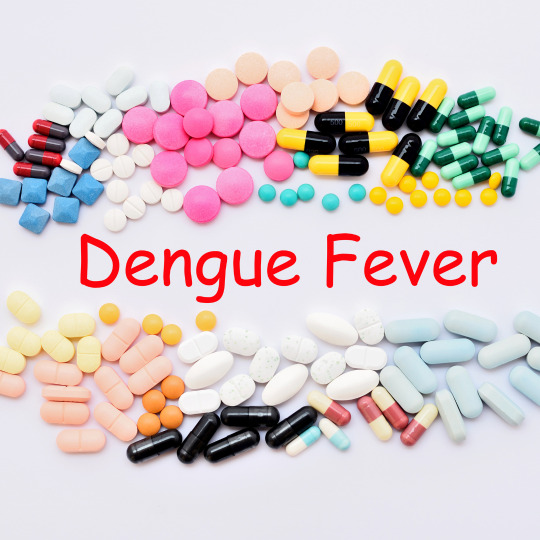
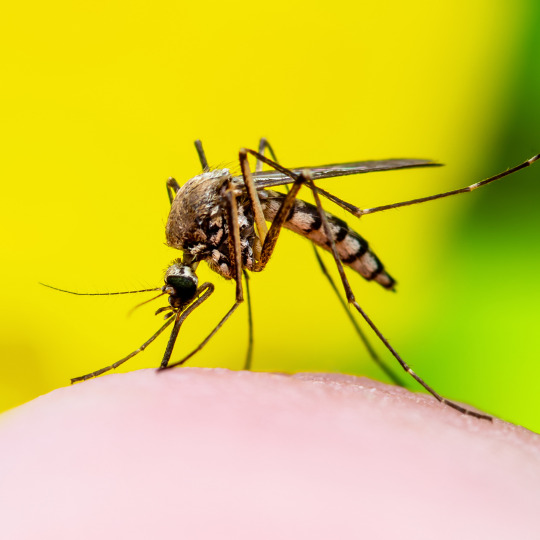
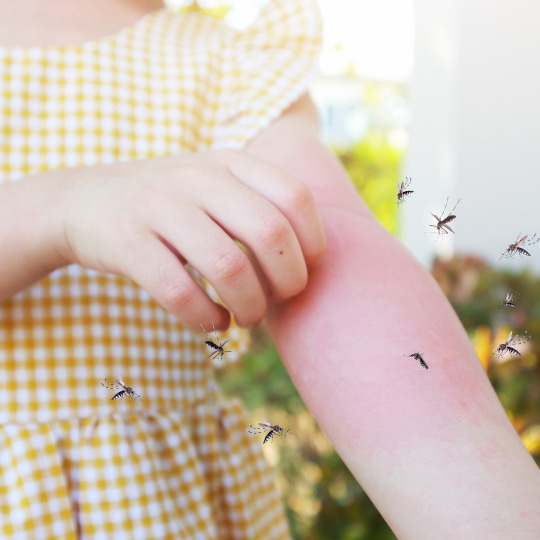
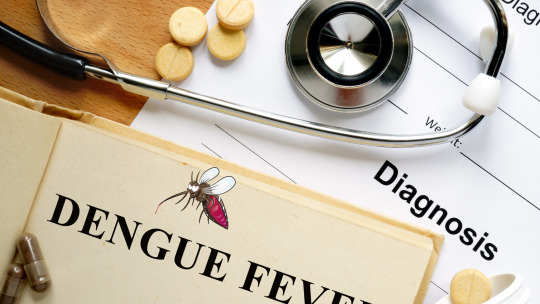
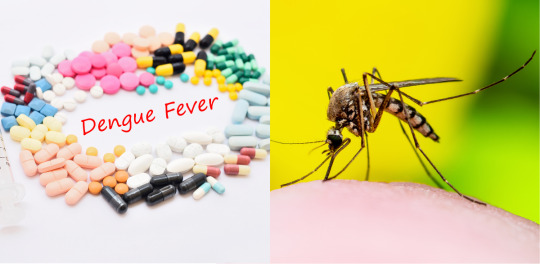
Dengue fever, a mosquito-borne illness spread by the dengue virus, presents as a severe flu-like illness with the Aedes mosquito serving as the primary vector.
#dengue fever#causes of dengue fever#dengue virus#4 stages of dengue fever#cause and effect of dengue
1 note
·
View note
Text
Dengue – Frequently Asked Questions
In recent days, Tamil Nadu has witnessed a marginal spike in dengue fever cases, affecting individuals of all ages – including Children and Adults.
This mosquito-borne infection has become a significant concern, exacerbated by various factors. One such is climate change, i.e., during the monsoon season, the outbreak of dengue is high.
Aedes mosquitoes, especially Aedes aegypti and Aedes albopictus, are the primary causes behind the spread of dengue through their bites.
Concerning this health concern, understanding its signs and symptoms, causes, diagnosis, and preventive measures is essential in mitigating its impact and preventing its spread.
Here are some frequently asked questions about dengue fever that can help you understand better.

Can Dengue Spread From Person To Person?
Dengue fever is primarily transmitted through mosquito bites, specifically those of Aedes mosquitoes. However, there are exceptional cases where the virus can be transmitted in different ways. For instance, if a pregnant woman contracts dengue, the virus can pass to her baby during pregnancy or around the time of birth. Additionally, though rare, dengue can be spread through blood transfusions.
Can Dengue Mosquito Bite At Night?
Dengue is primarily a daytime-biting mosquito-borne disease.
However, Aedes Aegypti, which is responsible for transmitting dengue stays active during peak times such as early morning (two hours after sunrise) and late afternoon (two hours before sunset).
What Is The First Sign Of Dengue Fever?
Dengue symptoms can range from mild to severe. And some individuals, especially children and teenagers, may not exhibit any signs of the disease at the earliest. Gradually the symptoms start to appear four to seven days after being bitten by an infected mosquito. In its milder form, dengue presents as a High Fever (often around 104°F) accompanied by any of the following seven warning signs:
Headache
Muscle, bone, and joint pain
Nausea
Vomiting
Pain behind the eyes
Swollen glands
Rash
In rare and severe cases, the disease can progress to hemorrhagic fever, leading to damaged and leaky blood vessels, severe bleeding, a sudden drop in blood pressure, and even death.
Can Dengue Fever Occur To The Same Person Twice?
Yes, a person can be infected with Dengue multiple times, as there are four different serotypes of the Dengue virus (DENV-1, DENV-2, DENV-3, and DENV-4).
Each serotype can cause the disease, and previous infection with one serotype does not provide complete immunity against the others. Some reinfections can result in more severe forms of the disease, particularly with the D2 strain, which is associated with symptoms like Dengue Hemorrhagic Fever and Dengue Shock Syndrome.
Immune complications may also occur in some cases, making reinfections more severe.
Do Platelets Decrease Because Of Dengue Fever?
Dengue fever can lead to a significant drop in platelet count in the bloodstream. As it affects the bone marrow, which is the site for the formation of platelets, platelet production reduces. Despite this, it can even increase the platelet destruction from peripheral blood.
These results in a condition termed Thrombocytopenia, occurring when the platelet count is low in the blood. As a result, it increases the risk of internal bleeding.
If this is the worst case, platelet transfusion may be necessary.
Can Dengue Be Prevented?
Preventing dengue primarily involves measures to protect yourself from mosquito bites and eliminate mosquito breeding sites. Here’s what you can do:
Stay in air-conditioned rooms or ensure that doors are closed if you don’t have air conditioning.
Limit outdoor activities, especially during dawn and dusk when mosquitoes are most active.
Wear protective clothing such as long-sleeved shirts and pants, to cover up the exposed skin.
Use mosquito repellent on exposed skin, and consider applying permethrin to clothing, shoes, camping gear, and bed netting.
Make your living environment free from mosquito breeding sites. Aedes mosquitoes often breed in stagnant water in items like automobile tires, air coolers, and flower vases. Regularly empty and clean these containers and keep them covered between cleanings.
Is Dengue A Fatal Disease?
The person suffering from dengue can recover completely as its symptoms can be managed by staying hydrated and taking medications as prescribed by the healthcare provider.
However, in some cases, Dengue can progress to conditions like Dengue Hemorrhagic fever and Dengue Shock syndrome. When left untreated, it can pose a risk to one’s health.
Early diagnosis, appropriate treatment, and the right medications can reduce the risk in severe cases.
How Is Dengue Diagnosed?
Early and accurate diagnosis of dengue is important for effective management and timely treatment.
When you seek medical assistance because of the concerning symptoms, the healthcare professionals will evaluate your symptoms, medical history, and recent travel history to regions where dengue is prevalent. While these symptoms can overlap with other illnesses, they provide important initial clues for diagnosis.
Followed by blood tests for dengue. This includes the following:
Antigen Test: This test identifies the presence of the dengue virus in a patient’s blood.
Polymerase Chain Reaction (PCR) Test: PCR is a molecular test that detects the genetic material of the dengue virus.
What Are The Treatment Options For Dengue Fever?
There is no specific antiviral treatment for dengue. In mild cases, patients are advised to stay hydrated to prevent dehydration and manage their symptoms with medications. However, in severe cases, hospitalization may be necessary, with treatment including intravenous (IV) fluid and electrolyte replacement, blood pressure monitoring, and blood transfusion to address complications.
When Should I Consult A Doctor?
Many people tend to overlook the symptoms of dengue fever. It’s crucial to consult a doctor if experiencing fever for more than 3 days. Never even neglect the mild symptoms; diagnose early and prevent the potential complications that arise because of dengue.
What Precautions Should Be Taken After Recovering From Dengue?
Eat a well-balanced diet with plenty of fruits and vegetables to help boost your immune system, which even helps you in the recovery phase.
Make sure to include adequate vitamins and minerals in your diet. Avoid oil and junk foods.
Hydrate yourself by drinking water, and healthy & refreshing juices.
Ensure your body gets sufficient rest to aid your recovery and regain strength.
Always follow the guidance and medications prescribed by your healthcare provider during and after the illness.
During the recovery phase, the body may still be weak, so excessive physical exertion should be avoided. Instead, walking or light exercise can be practiced.
Which Signs Include That We Are Cured From Dengue?
The patient begins to regain the lost function.
During the recovery phase, which typically occurs 7 days after the onset of Dengue, the patient’s condition gradually improves. This includes the subsiding of fever, increased urination, and a returning appetite.
In rare cases, even after crossing the recovery phase, if you encounter any of the following symptoms, seek immediate medical attention:
Decreased urination
Few or no tears
Dry mouth or lips
Lethargy or confusion
Cold or clammy extremities
Book Your Appointment with Dr Mehta’s Best Dengue Doctors in Chennai!!
To wrap it up,
Knowing more about Dengue from this FAQS article helps you make smart choices for your health and your community during times when the disease is more prevalent.
By understanding the key aspects of the disease, its symptoms, and preventive measures, you play a vital role in staying safe and contributing to Dengue prevention efforts.
Stay informed, stay vigilant, and together let’s combat Dengue effectively!!!
#dengue#dengue fever#dengue treatment#dengue causes#dengue symptoms#dengue virus#hospital#healthcare#medicine#mehta hospital
0 notes